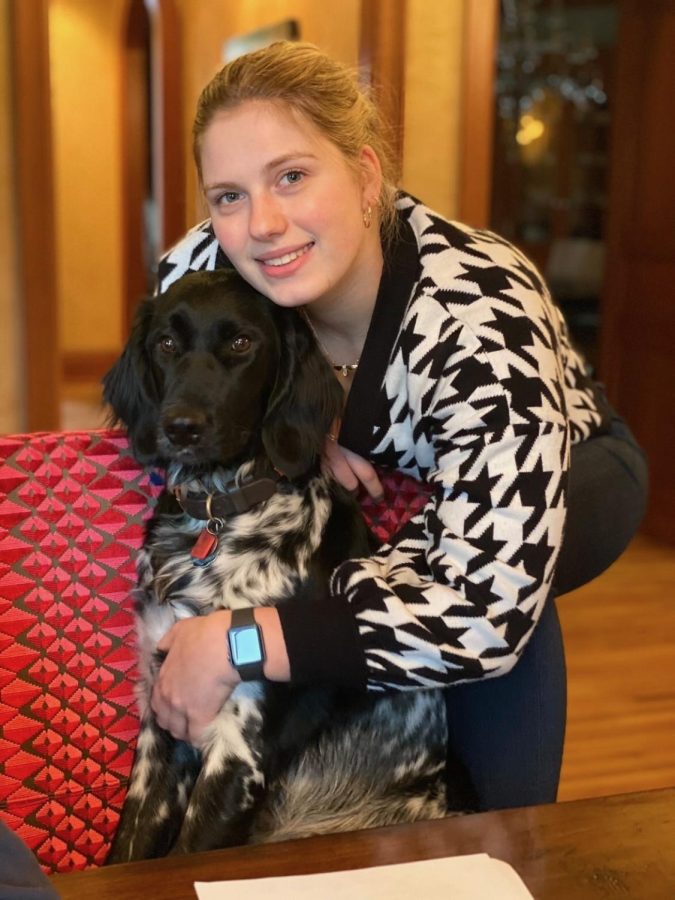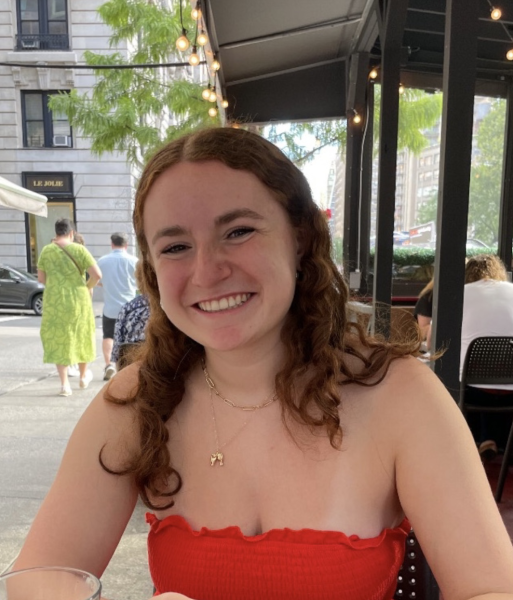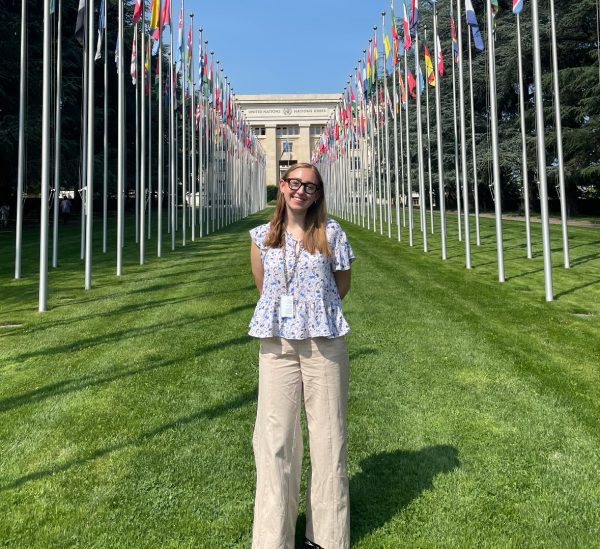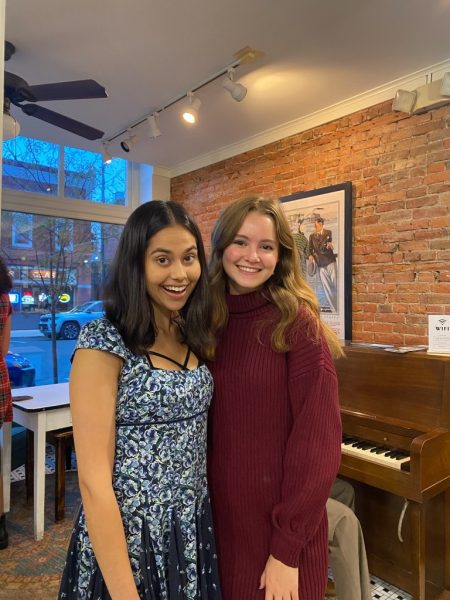Ingrid Vorbich: Activism and Acoustics
For first-year Ingrid Vorbrich, music is more than an art form: it’s political commentary wrapped up in entertainment; espionage and revolution in an easily digestible (if not always easily comprehensible) medium.
Colgate University’s WRCU FM 90.1 pre-orientation was Vorbrich’s introduction to the world of radio. During her senior year of high school, Vorbrich embarked on a two-week project in which she explored the dynamic relationship between music and social justice.
“I’m really passionate about social justice but I also grew up playing piano and violin,” Vorbrich said, recalling the inspiration for her senior project, and ultimately her radio show.
Spurred by her passion for both social justice and music, and eager to see how the two would interact, Vorbrich brought her findings to WRCU.
Vorbrich explained, “I got involved through the pre-orientation, so that’s how I came about this, but I didn’t do anything like this in high school.”
For her and many others, WRCU’s pre-orientation program served as an introduction not only to the world of radio, but also to campus life and engagement based primarily in individual interests and passion projects.
Vorbrich hopes the title of her show, “Impelling with Ingrid,” encapsulates the spirit of her work with tolerance and equality in modern-day America.
“I wanted to do something that talked about how the songs I was choosing were inspiring and had something to do with social justice, so I was playing around with ‘inspiring’ or ‘compelling’ [as names],” Vorbrich recalled.
But the true revelation came from friend and fellow first-year Maya Khadem, who introduced the idea of “impelling.”
“It means to call to action and to inspire people to make a difference, and basically drive them to action … so I really like that word,” Vorbrich said.
Although “Impelling with Ingrid” is not a talk show, Vorbrich takes advantage of her platform to ensure that the unique perspective of an activist and music-enthusiast still manages to come through.
“Normally if you have a radio show you talk for ten minutes an hour. I talk for about twenty which is more than normal but less than if I had a talk show,” Vorbrich explained. “I feel like you can hear my perspective when I talk about it but I’m trying to keep it to what the artist believes. … I feel like I don’t have time to get into my own beliefs.”
The dynamic array of songs which Vorbrich highlights on “Impelling with Ingrid,” far from being inattentive, are the result of careful consideration regarding current events, political commentary and, of course, the music itself.
In reference to making the genre selection Vorbrich said, “That’s where it’s difficult, because I choose a song that impacts a social or political movement. But I always start with ‘A Change is Gonna Come’ by Sam Cooke, which is soul, R&B and orchestral.”
Although Sam Cooke’s “A Change is Gonna Come” serves as a cohesive introduction to her show, maintaining this level of consistency from week to week can prove difficult at times.
“I love starting with that song but it can be difficult to transition— [the decision’s] calculated,” Vorbrich said. “And then depending on what my song of the week is I have to somehow transition into that genre.”
Instead of focusing on just one area of injustice, Vorbrich seeks to highlight the diverse array of social issues plaguing America today.
Vorbrich stated, “In the show it tends to be racial and anti-war, because a lot of songs are anti-war (like Bob Dylan and folk music), [but] I’ve done a lot of racial justice as well (like Kendrick Lamar).”
With the breadth of musical genres and artists who speak (either discreetly or overtly) on issues of social justice, it would be difficult for Vorbrich to ignore some of the patterns of the industry.
“It’s a lot of classic rock, some folk, a little alt … [but] not really pop because those [songs] don’t usually have that in-depth meaning” recognized Vorbrich. “[There’s also] capitalist commentary, class equality, anti-American government, lots surrounding 9/11 and how we handled that. … I don’t try to focus on one.”
Vorbrich’s findings indicate that the social and political messages of certain genres tend to align themselves with the style of the music itself, as well as the ideologies of the artist.
“Folk is a lot of anti-war, pacifist music, and also talks a lot about class and equality. … It rarely comments on racial or gender equality,” Vorbrich said. “Rap/hip hop [on the other hand] is more racial injustice, and then hard-rock is like … screw the world, that type of thing.”
Outside of her studio, tucked away in the basement of the Coop, Vorbrich brings her passion with her across the quad.
“In my religion class last semester I talked about how hip hop serves as a religion for some people, and how through its messaging it can reach more people and kind of fulfill the criteria for Black religion in a way that the Black church isn’t doing at the moment,” recalled Vorbrich.
But as a radio show host, Vorbrich acknowledges that it is not always her perspective that matters.
“I don’t hear the feedback of people who listen to the radio, but everyone I’ve talked with about it is really interested,” Vorbrich recognized.
Vorbrich assumed that part of this interest is related to the new perspectives which she offers for what are typically regarded as un-controversial songs:
“I think most people are pretty receptive, especially because I really love when I play a song like ‘Born in the USA’ which people view as pretty patriotic but which is actually anti-USA.”
For Vorbrich, part of music’s immense capacity for change comes from an artist’s ability to infiltrate otherwise impenetrable sects of society.
“I think music is so powerful in the sense that a lot of what it can say it can say subtly,” said Vorbrich. “It can get into spaces where other forms of art can’t get in, and is often placed in really ironic situations.”
Vorbrich’s exploration of music and its interconnection with social justice has served to deepen her appreciation for the medium.
“I’ve always been someone who really wants to know the background behind songs,” Vorbrich said. “But after starting this project I definitely view it as a powerful tool.”














